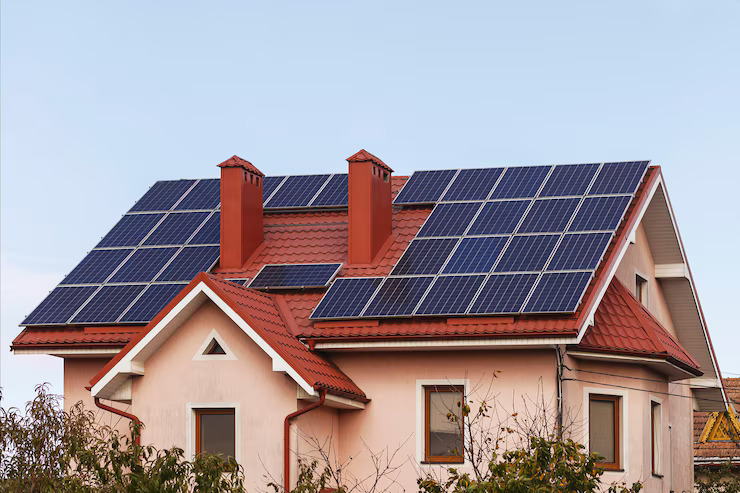Residential Solar Panel Installation Cost in India 2025: A Comprehensive Guide
As electricity prices continue to rise and environmental concerns become more pressing, many Indian homeowners are turning to solar energy as a sustainable and cost-effective solution. In 2025, the cost of installing solar panels in India has become more accessible, thanks to technological advancements and government incentives. This guide provides an overview of the current costs, factors influencing pricing, and available subsidies to help you make an informed decision about transitioning to solar power.
Understanding the Cost of Installing Solar Panels in India
The solar panel cost in India varies based on several factors, including system size, type, location, and component quality. Here’s a breakdown of average costs for residential solar systems in 2025:
Average Installation Costs by System Size
| System Size | Estimated Cost (INR) | Notes |
| 1 kW | ₹70,000 – ₹1,00,000 | Suitable for small households |
| 3 kW | ₹1,90,000 – ₹2,25,000 | Ideal for medium-sized homes |
| 5 kW | ₹2,40,000 – ₹3,00,000 | For larger households with higher consumption |
| 10 kW | ₹4,75,000 – ₹6,40,000 | Suitable for very large homes or small businesses |
Note: These are average estimates; actual costs may vary based on specific requirements and local factors.
Cost Components:
- Solar Panels: The primary component, with costs ranging from ₹37,500 to ₹42,000 per kW, depending on the type (monocrystalline or polycrystalline).
- Inverters: Essential for converting DC to AC power, costing between ₹20,000 to ₹80,000, based on capacity and type.
- Mounting Structures: Prices vary from ₹10,000 to ₹50,000, influenced by installation complexity and materials used.
- Batteries (Optional): For off-grid or hybrid systems, batteries can add ₹20,000 to ₹1,00,000 to the total cost.
- Installation and Labor: Professional installation ensures system efficiency and safety, with costs varying by region and system complexity.
Government Subsidies and Incentives
To promote solar adoption, the Indian government offers subsidies under the Pradhan Mantri Surya Ghar Muft Bijli Yojana:
- Up to ₹60,000 for systems up to 2 kW.
- Up to ₹78,000 for systems between 2 kW and 3 kW.
- Fixed ₹78,000 for systems above 3 kW.
- Indian citizens owning a legal residential property with sufficient rooftop space.
- Valid electricity connection.
- No prior availed solar subsidies.
- Register on the official portal: pmsuryaghar.gov.in.
- Submit necessary documents and await approval.
- Post-installation, the subsidy amount is credited directly to the beneficiary’s bank account.
State-Specific Pricing: Uttar Pradesh
In Uttar Pradesh, where you’re located, the solar panel cost in India for residential installations is as follows:
- 7 kW System: ₹4,58,000 – ₹5,01,000 (before subsidy)
- 10 kW System: ₹5,83,000 – ₹6,40,000 (before subsidy)
Note: These figures are indicative; actual prices may vary based on specific requirements and market conditions.
Benefits of Installing Solar Panels
- Reduced Electricity Bills: Generate your own power and decrease reliance on the grid, leading to significant savings.
- Environmental Impact: Solar energy is clean and renewable, reducing your carbon footprint.
- Energy Independence: Protect yourself from rising energy costs and power outages.
- Increased Property Value: Homes with solar installations often have higher resale values.
Financing Options
Various financing options are available to make solar installations more affordable:
- Bank Loans: Many banks offer loans specifically for solar installations at competitive interest rates.
- EMI Plans: Some solar companies provide easy monthly installment plans.
- Government Schemes: Apart from subsidies, certain government schemes offer low-interest loans for renewable energy projects.
Conclusion
Investing in solar energy in 2025 is not only environmentally responsible but also economically beneficial. With decreasing installation costs and supportive government policies, now is an opportune time to consider making the switch.
For personalized advice and installation services, visit Smart Solar Tech to explore how you can harness the power of the sun for your home.


 Blog
Blog